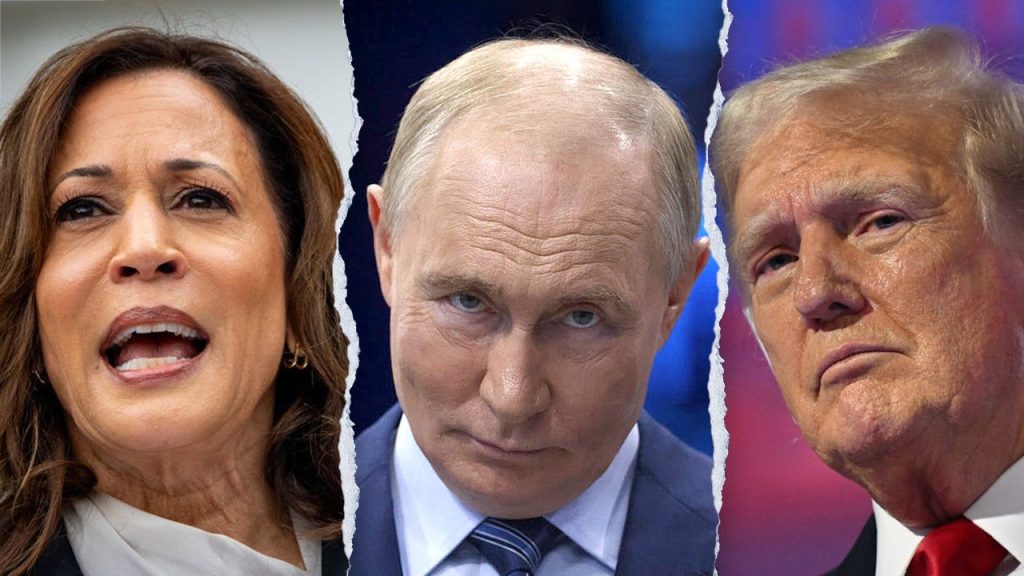Russian President Vladimir Putin recently made comments appearing to endorse Vice President Kamala Harris in the 2024 presidential race against former President Trump. At the Eastern Economic Forum in eastern Russia, Putin stated that as President Biden has backed Harris, “we will do the same, we will support her.” Putin expressed confidence in Harris, describing her as someone who laughs expressively and infectiously, indicating that everything is fine with her. This endorsement comes after Putin threw his support behind Biden earlier this year, claiming he preferred Biden to Trump as he is a more predictable candidate.
According to former DIA intelligence officer and author Rebekah Koffler, the Russian regime’s preference for Harris over Trump is based on the belief that they can manipulate Harris more easily. Putin and his regime view Harris as a future U.S. president who is more predictable and easier to deal with compared to Trump, who they consider unpredictable and difficult to read. Koffler suggests that Putin’s statements are part of a classic influence operation to unbalance adversaries by appearing to mock, tease, and please them. Despite Putin’s comments supporting Democratic candidates over Trump, the U.S. intelligence community continues to assess that Putin would prefer a second Trump presidency, according to reports from earlier this year.
The assessment of Putin’s preference for Harris over Trump in the White House is consistent with actions authorized by Putin during the 2016 and 2020 elections, where Russia engaged in election interference by running disinformation campaigns to boost Trump’s candidacy. The U.S. Director of National Intelligence found evidence of Russian influence operations aimed at denigrating President Biden’s candidacy, supporting Trump, and undermining public confidence in the electoral process during the 2020 election. Despite Russia’s denial of meddling in U.S. elections, Putin’s apparent support for Democratic candidates goes against his strategic interests.
Putin’s recent comments included a willingness to engage in peace talks with Ukrainian President Volodymyr Zelenskyy. He mentioned the possibility of Brazil, India, or China acting as mediators in the talks, although Ukraine is unlikely to agree to China’s involvement given its support for Russia in the war. This marks a reversal from Putin’s previous statements ruling out talks amid Ukraine’s invasion into Kursk. There are concerns about how a second Trump presidency could impact NATO, as Trump has suggested pulling U.S. troops from Europe, which could potentially destabilize the alliance and embolden Putin. Despite Trump’s claim to have a plan to end the war, he has not detailed any concrete policy steps for doing so.
Putin’s endorsement of Harris in the 2024 presidential race highlights the complex dynamics between Russian interests and U.S. politics. While Putin has expressed support for Democratic candidates like Harris, the U.S. intelligence community continues to view Putin as favoring a second Trump presidency due to his past actions in influencing U.S. elections. The ongoing conflict in Ukraine and the potential impact of a second Trump presidency on NATO remain key concerns in the geopolitical landscape. Putin’s willingness to engage in peace talks with Ukraine and the suggestion of potential mediators reflect the ongoing efforts to navigate complex international relations and conflicts. Ultimately, the interactions between Russia, the U.S., and other global actors underscore the need for strategic diplomacy and careful engagement to address complex geopolitical challenges.


